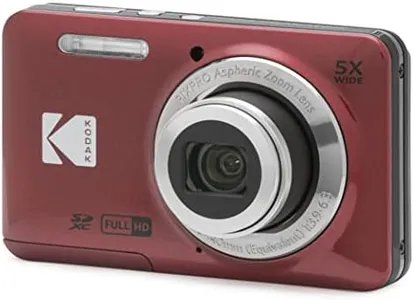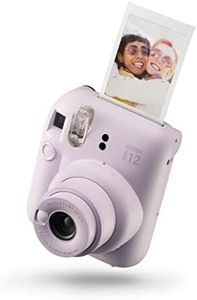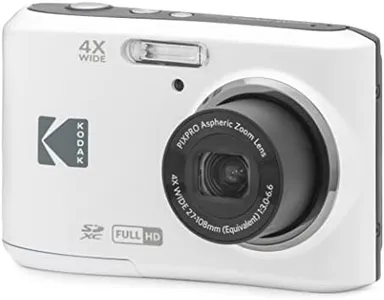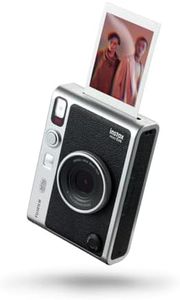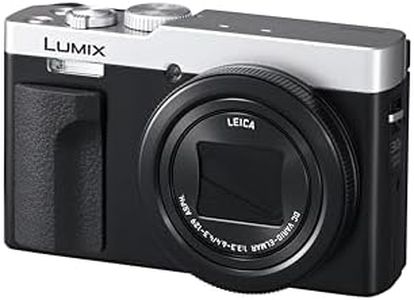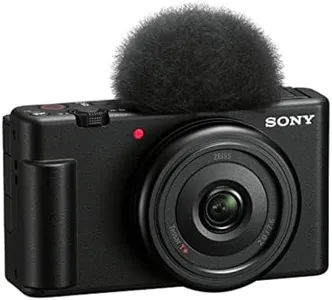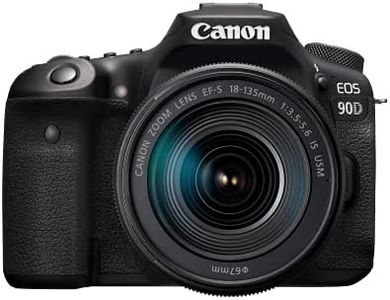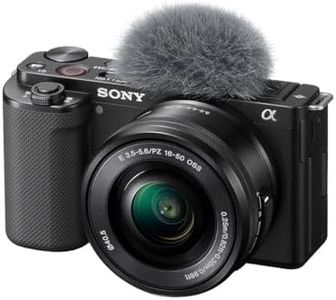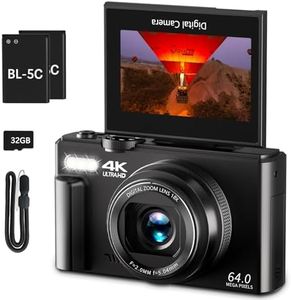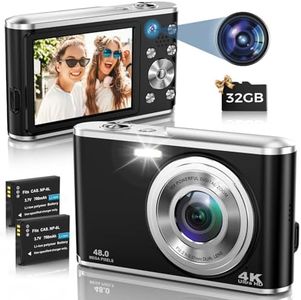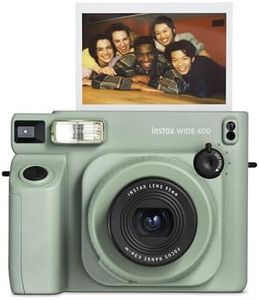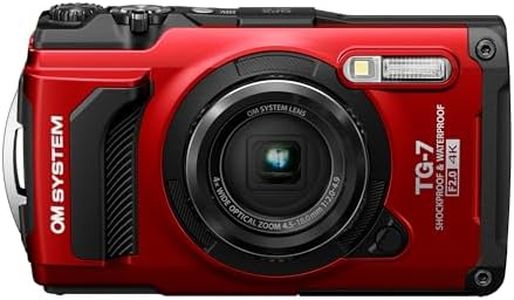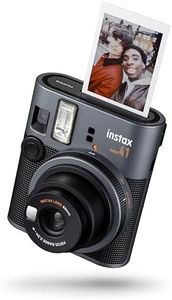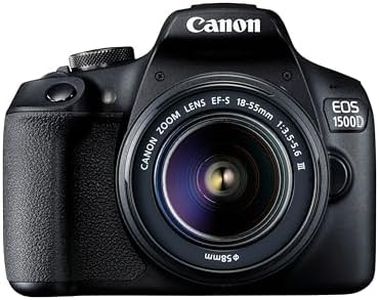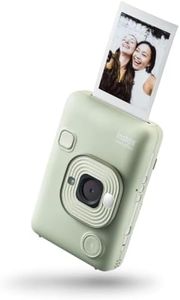We Use CookiesWe use cookies to enhance the security, performance,
functionality and for analytical and promotional activities. By continuing to browse this site you
are agreeing to our privacy policy
10 Best Cameras For Beginners
From leading brands and best sellers available on the web.Buying Guide for the Best Cameras For Beginners
Choosing your first camera can be an exciting journey, but it’s easy to feel overwhelmed by the technical talk. The best camera for you is the one that matches your interests, is comfortable to use, and encourages you to take more photos. Start by thinking about what and where you want to shoot. Are you hoping to capture landscapes, family moments, sports, or perhaps close-ups of nature? How much are you willing to carry around? Your needs will help guide your decision when looking at different camera models.Sensor SizeThe sensor is like the film in a digital camera—it captures the light and details of your photo. Bigger sensors generally mean better image quality, especially in low light. Common types are 'full-frame,' 'APS-C,' and 'Micro Four Thirds.' Full-frame sensors are the largest and provide excellent detail, but the cameras themselves tend to be bigger and heavier. APS-C sensors are slightly smaller, offering a great balance between quality and portability. Micro Four Thirds sensors are smaller still, which makes cameras compact and easier to carry. If you want the highest quality and don’t mind a bulkier camera, go for a larger sensor. If you value portability, a smaller sensor is just fine for most everyday photos.
Interchangeable vs Fixed LensSome cameras let you switch lenses, while others come with a lens built-in. Cameras with interchangeable lenses, like DSLRs or mirrorless models, give you more creative options as you learn and grow, letting you use wide, zoom, or macro lenses as needed. Fixed lens cameras are simpler and more compact but less flexible. If you want an all-in-one option that's easier to carry and less to learn, pick a fixed lens. If you think you’ll want to experiment more over time, go for a camera where you can swap lenses.
Ease of UseFor beginners, the user interface and controls should feel approachable. Some cameras offer lots of automatic modes that make it easier to get started—things like scene modes and guide menus. Others are more manual and expect you to adjust settings yourself. If you want a camera that helps you learn, look for models that have helpful on-screen guides, clear menus, and easy-to-reach buttons. If you’re confident with technology, you can pick a camera with more manual control for more creative options.
Size and WeightCameras come in all shapes and sizes. Larger cameras might feel sturdier in the hand and often have more features, but can be heavy to carry around all day. Smaller cameras are easier to slip into a bag and take anywhere. Think about where and how you’ll use your camera. If you see yourself hiking a lot or traveling, a compact, lightweight camera will make things easier. If you don’t mind carrying something bulkier, a larger camera gives you more room to grow.
Image StabilizationImage stabilization helps reduce blur from shaky hands, especially in low light or when zooming in. Some cameras have this built into the body, while others rely on lenses with stabilization. For handheld shooting, especially in challenging light, built-in stabilization is a great feature. If you plan to shoot mostly in good light or use a tripod, it’s less crucial. Beginners who want crisp photos without extra effort will benefit from having stabilization.
Video CapabilitiesMany beginner-friendly cameras can also shoot video, sometimes even in full HD or 4K. Think about whether you want to make high-quality videos or just occasional clips. For basic video recording, almost any modern camera will do. If you’re interested in getting into vlogging or filmmaking, look for cameras with higher video resolution, a flip-out screen, and microphone input for better sound.
Battery LifeBattery life determines how many photos or videos you can shoot before needing to recharge. Some cameras, especially mirrorless types, have shorter battery lives than traditional DSLRs. If you plan long days out shooting, opt for a camera with a longer battery life or consider carrying spare batteries. For casual use, most beginner cameras will last through several hours of photos.
